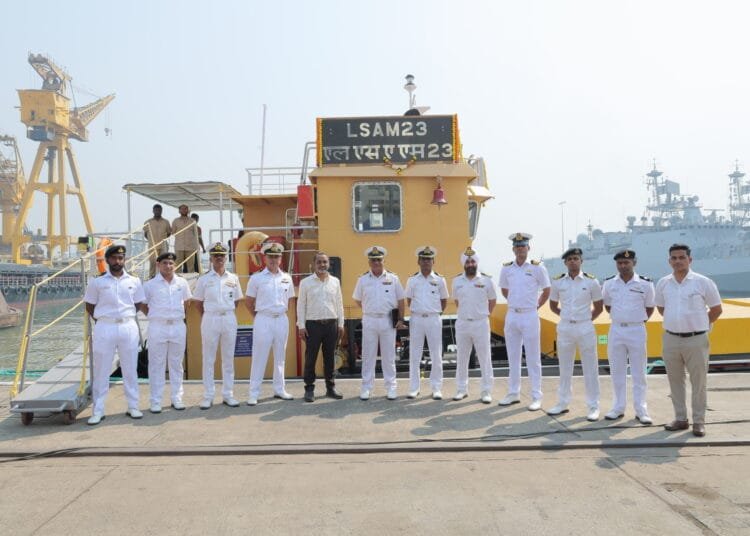Develop new processes and products for farmers, says Gowda
The agriculture sector has a huge potential to play a key role in taking India to a US$5 trillion economy as it is already contributing 14-16% to the Gross Domestic Product (GDP), Gajendra Singh Shekhawat, Minister of Jal Shakti, Department of Water Resources, River Development & Ganga Rejuvenation told an industry conference on 1 Dec 2020.
“Indian economy is directly related to agriculture and agriculture is directly related to water,” Shekhawat told a session on ‘Role of water and Agrochemicals in envisioning a globally competitive, modern, sustainable & inclusive Indian Agriculture Industry’ at the ‘9th Agrochemicals Conference’ organized by FICCI.
Urging the industry for investment in the agricultural sector, he said the industry needs to support the government in its initiative to save water.
“We need to have a futuristic vision for agriculture,” said Shekhawat, acknowledging the sector’s importance to prosperity.
The management of water is of utmost importance in India. The government has taken a ground-breaking initiative for ensuring the long-term sustainability of groundwater resources in the country through the Atal Bhujal Yojana, he added.
Elaborating further, he said that the scheme has been designed with the principal objective of strengthening the institutional framework for participatory groundwater management and bringing about behavioural changes at the community level for sustainable groundwater resource management.
“Equitable distribution in water is vital and water management key to sustainable agriculture growth in India,” stressed Shekhawat. “It’s time that we shift our approach of water management from the supply side to the demand side.”
“We need to make farmers aware of the conservation of water and taking alternative crops for cultivation and move towards micro-irrigation.
“With climate change and reduced water availability affecting major parts of India, an efficient irrigation system is essential to the success of the agricultural sector,” the Minister underlined.
Further highlighting the government initiatives, he said, that to save water and for better implementation of its crop diversification plans, the government has launched various schemes to encourage farmers to change their cultivated-crop preferences.
The minister also spoke about efforts being made by the centre to solve specific issues of agriculture and water and said this is high time to invest in the post-harvest system and supply chain management.
“The government’s call for a ‘vocal for local’ will provide a new roadmap to agriculture,” he added.
“The Agrochemicals industry should focus on developing new processes and products with sustainability as the core principle. This requires developing a collaborative platform including academia, government and regulatory bodies, farmers’ associations, manufacturers, and farmers coming together to promote safe and judicious usage of pesticides,” said D V Sadananda Gowda, Minister of Chemicals and Fertilizers.
Gowda highlighted India’s capability in low-cost manufacturing, availability of technically trained resources, seasonal domestic demand, overcapacity, better price realization, and a strong presence in generic pesticide manufacturing are the major factors boosting the growth of the agrochemicals.
“The government is focusing on strengthening the sector by supporting the industry with the development and adoption of new technologies and techniques.
“We must make well-informed strategic changes and restructure the businesses to navigate this uneven demand scenario until the threat of the pandemic is over and industry dynamics return to pre-outbreak levels,” Gowda pointed out.
“R&D and innovation should be among the top priority for us,” said Rajesh Kumar Chaturvedi, Secretary, Department of Chemicals & Petrochemicals.
“These are key drivers for the growth in the sector and will supplement the efforts of the industry in the global value chain. Industries’ safety and sustainability should be a priority to safeguard the long-term global value chain. It is imperative to develop a mechanism to make India’s Agrochemicals industry a global brand,” said Chaturvedi.
Rajesh Aggarwal, Managing Director, Insecticides India, noted the farmers’ need to have a complete solution for their crops to get the best yield and expect the latest technology at an affordable cost.
The issue for policymakers and the industry is to work together in terms of creating a demand in the farmer community on basis of water availability, Neel Kamal Darbari, Managing Director, Small Farmers’ Agri-Business Consortium, emphasized.
“There must be a culture that moves away from flood irrigation,” she added. #agriculture #investment #technology #investment #manufacturing /fiinews.com









